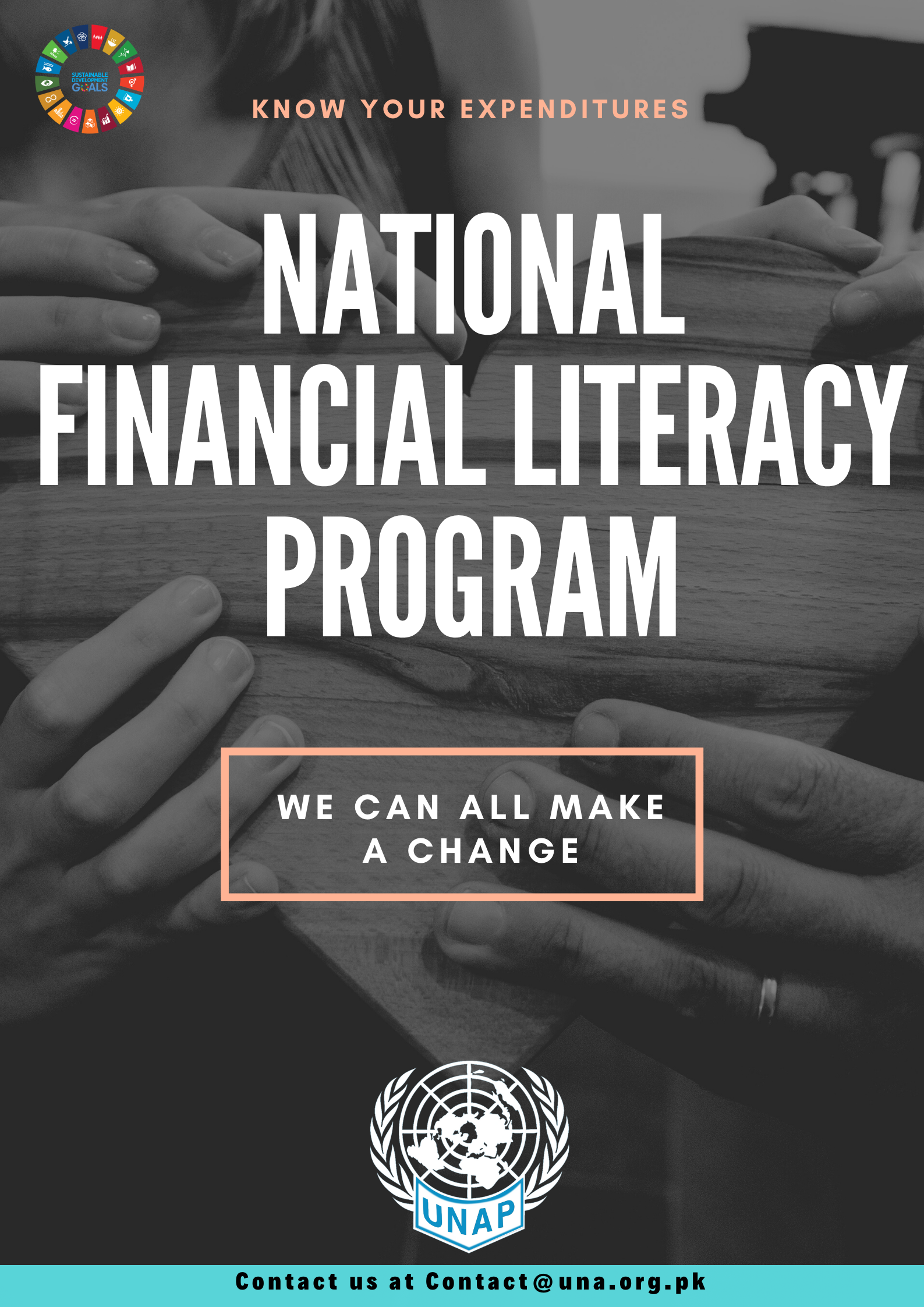Pakistan is one of the youngest and fastest developing countries of the world. According to statistics 60.19% of the 212.67 million population is between the ages 15-40. However, the large workforce is not reliant of banks and statistics show that only 360 people out of a 1000 are likely to deposit their earnings with commercial banks.
The National Financial Literacy Program (NFLP) was started to address this issue. The program is funded by the Asian Development Bank and being implemented in partnership with the State Bank of Pakistan, local and international banks and non-profit organizations. In this regard Standard Chartered Bank has partnered with UNAP to execute this for people from low income groups in Pakistan.
NFLP’s scope includes an intended change in attitudes and behavior. Its pictorial handbooks and activity-based workshops are geared to the learning capacity and situations of its target audience, many of whom may be functionally illiterate. Given the high level of financial exclusion, national levels of literacy and myths surrounding the formal financial system, NFLP’s immediate priority is to help its participants understand how to manage their money along with their rights and responsibilities in order to utilize the system and improve their living standards.
| QUICK FACTS | |
| Duration: | 2020 – 2021 |
| Implementing partners: | Standard Chartered Pakistan, State Bank Pakistan |
| Location: | Karachi, Sindh |
| Funding partners: | Asian Development Bank |
| Project Details: | Download Full Project Brief |
| Further Details: | contact@una.org.pk |
QUICK FACTS
Duration:
2020 – 2021
Implementing partners:
Standard Chartered Pakistan, State Bank Pakistan
Location:
Karachi, Sindh
Funding partners:
Asian Development Bank
Project Details:
Download Full Project Brief
Further Details:
contact@una.org.pk
Programme Outputs
- Imparting knowledge and understanding of financial concepts, banking/financial products and services.
- Develop skills and attitudes towards budgeting, savings, investment, debt management, financial negotiation, rights and obligations, etc.
- Facilitate behavioural changes and practices to improve financial outcomes; including financial wellbeing through increased savings, improved debt management, perceived financial stress or satisfaction.
- By 2030, ensure that all men and women, in particular the poor and the vulnerable, have equal rights to economic resources, as well as access to basic services, ownership and control over land and other forms of property, inheritance, natural resources, appropriate new technology and financial services, including microfinance
Expected results in 2020 Q2- Onwards
- 3000+ young men and women meaningfully engaged in financial services
- Bringing a significant change to lower middle-class families financial planning
- City wide awareness on microfinance and benefits of uses
Results achieved in 2020 Q1
- More than 350 working class adults belonging to lower middle-class families engaged in dialogues which educated them on financial awareness with Standard Chartered and State Bank officials
- 350 Adults (200 women 50 men) engaged through various presentations and methods to educate them about the finance.
- Successfully portrayal of a positive image of banking and use of microfinance.
- Successful integration of microfinance services such as Telenor Easy Paisa in the lives of these individuals.

